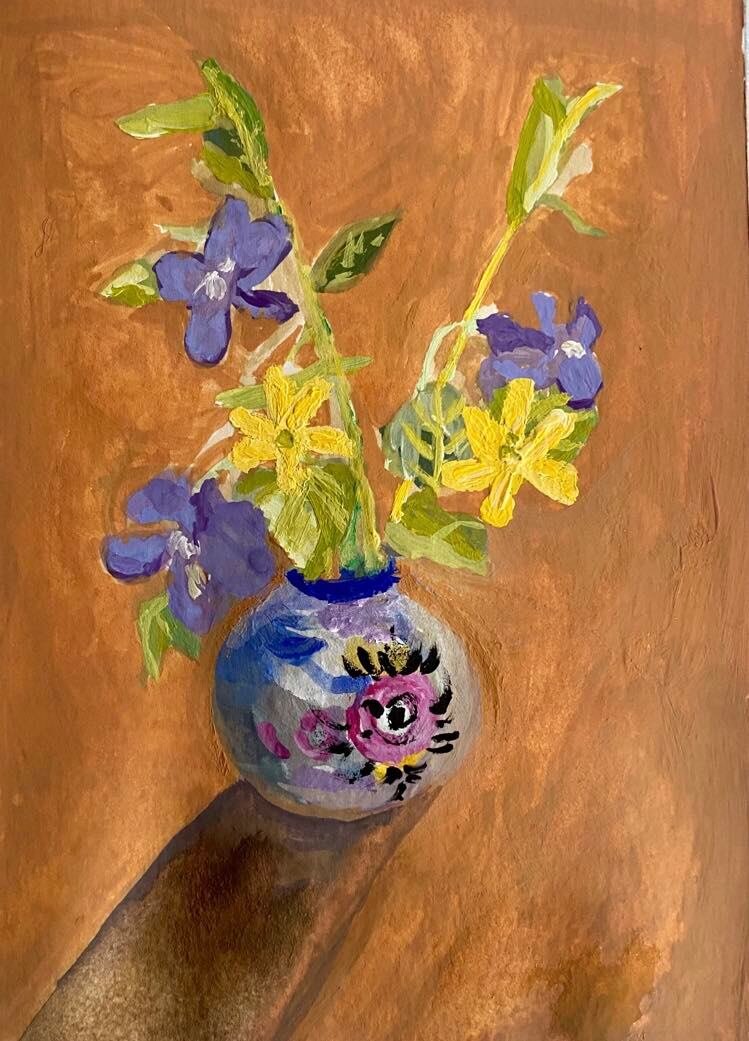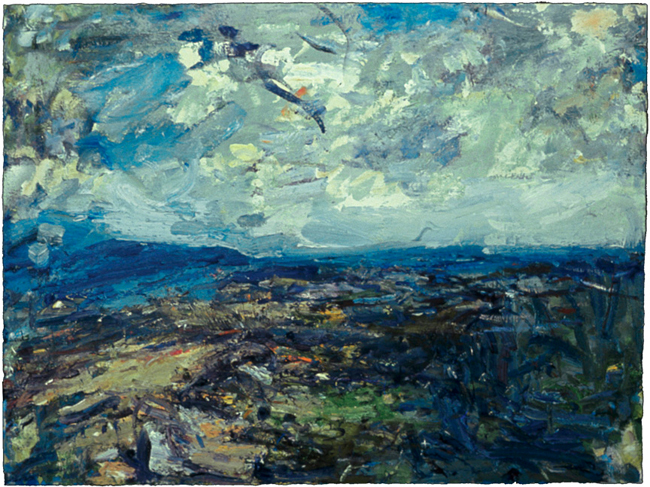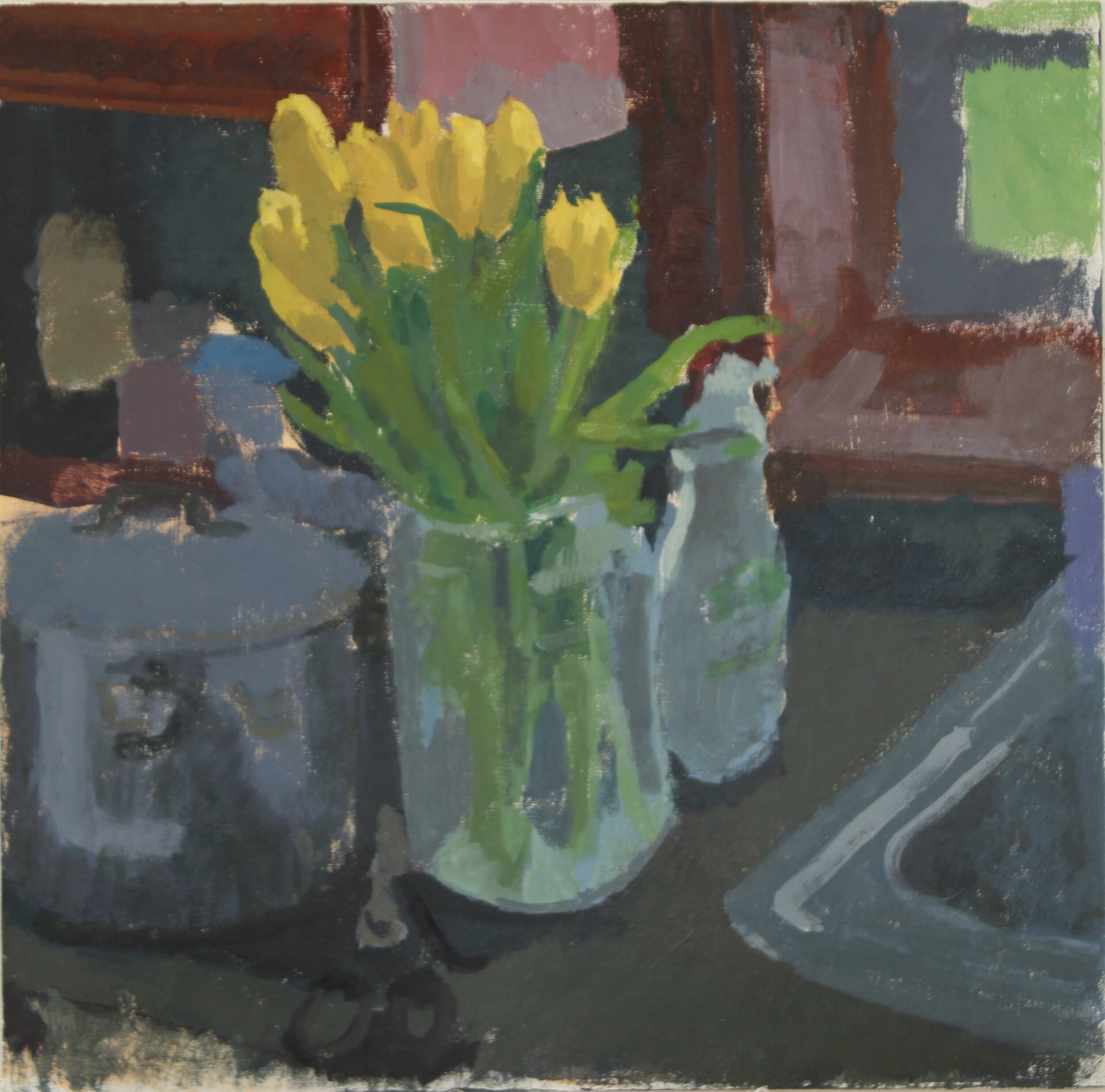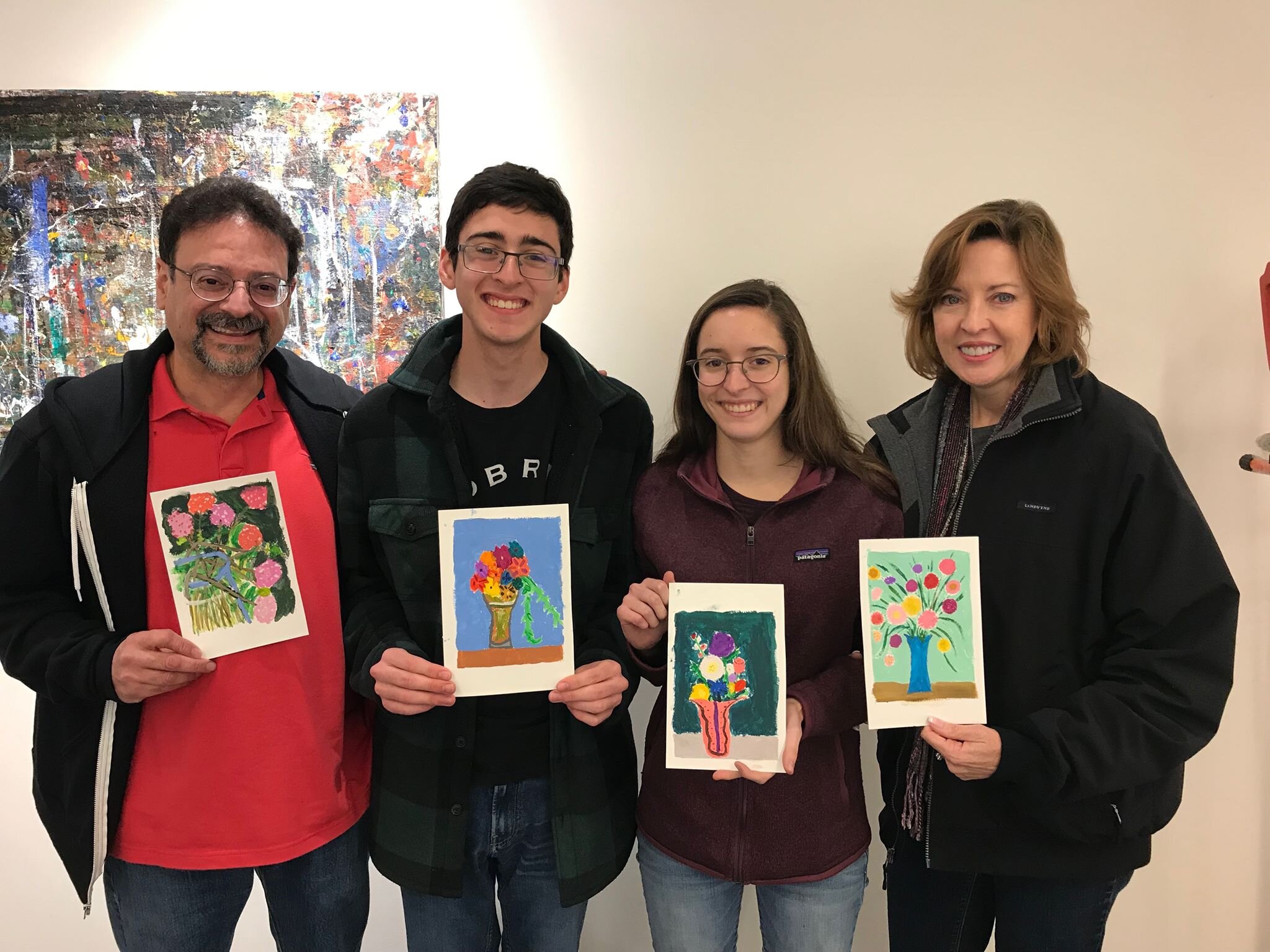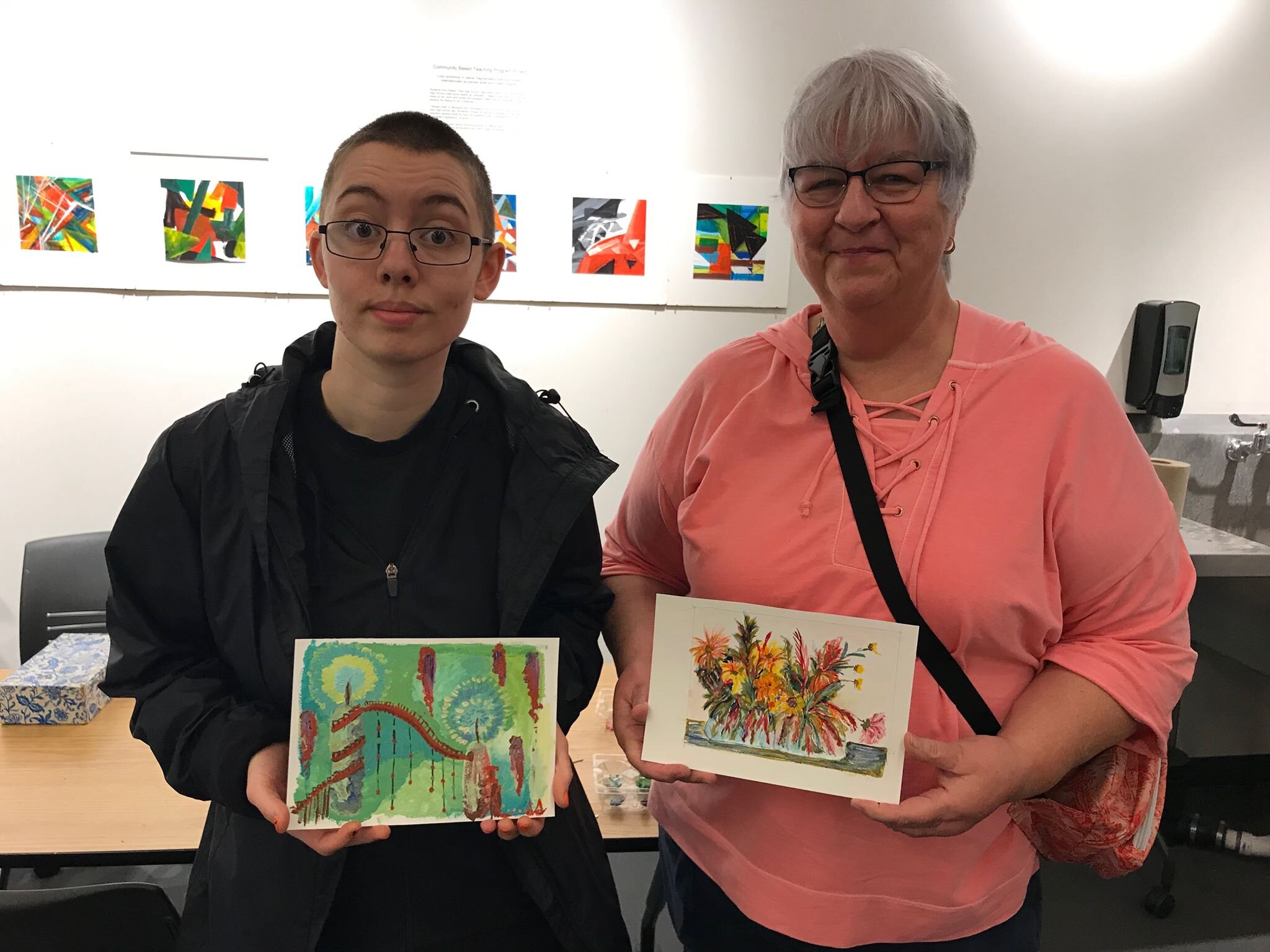"What we are seeking to see and understand in this world, we are that."
--Rumi
"Head of a Woman" (La Scapigliata), by Leonardo da Vinci, 1500-1505
She couldn't get it out of her head. That other head, burning inside of her own, driving her crazy. Maggie just had to see it again, the perfect, unfinished drawing by Leonardo da Vinci, his "Head of a Woman." Somehow, that woman's head now existed within her own imperfect head, in her memory, and so she felt a certain wild possessiveness, a yearning. And perhaps, Maggie mused, she herself existed within the head of some larger, cosmic woman, some unfinished goddess, just like one of those matryoshka dolls.
Maggie's hands trembled as she paid for her bus ticket, pushing the twenty dollar bills through the slot in the plastic window. Settling herself down in the bus seat, she heaved a great sigh. She recalled her first visit to the Met Breuer museum a few months ago, in April, when it was cool and rainy, and the white blossoms had barely opened. That day had been so full of hope, of cherished love, and innocence. Now, the oppressive summer heat dominated the city, along with the guilt which pressed down upon the shambles of her life.
Maggie leaned her cheek against the grimy glass of the bus window, and watched the miles of New Jersey highway roll on by. It was impossible not to think about herself, a failed artist on the edge of turning forty, tormented by inner demons. She bit down hard on the inside of her mouth, a little trick she had, to distract herself from her real pain. Then she opened her small sketchbook, and flipped through a few pages of drawings, until she came to her notes from her last visit. In it she had recorded a review from The New Yorker:
"The show is a non-stop sequence of arousals and exhilarations."
Yes. That was exactly it. Arousals and exhilarations. Unending waves of them...
Below that, in her sketchbook, she had written a fragment of a Rumi poem:
God picks up the reed-flute world and blows.
Each note is a need coming through one of us,
a passion, a longing pain.
When the bus arrived at Port Authority, Maggie nearly ran all the way up Madison Avenue, desperate to enter the museum, that holy sanctuary, where she could escape the tortures of her own mind, if only for an hour. The exhibition, Unfinished: Thoughts Left Visible, was a collection of works left incomplete by their makers, beginning with Renaissance masters. The rooms were filled with intimate glimpses into the creative process, like windows in an obscene peep show, as she had fancied back in April. She had imagined how horrified these artists might be, if they were still alive, to know that their work was visible to everyone...
Upon entering the room, memories came rushing back with such force, she could hardly breathe. Today, she looked at the artwork with something approaching envy. If only things could remain unfinished, she thought. There was a perfection to this unfinished state, still alive with potential and hope, which, once lost, could never be regained. When you finish something, you kill it, she thought grimly.
But then, unbidden, words from her college painting teacher came into her mind. If you think you have overworked a painting, it's really just the opposite. You haven't done enough work to it. More needs to be done. She blinked back tears, remembering how kind he had been, almost twenty years ago. It only made her feel more miserable and undeserving.
Heart in her throat, Maggie walked straight ahead to the da Vinci drawing. Unlike her last visit, when she had to stand tip-toe to see over the crowd of tourists, today the room was nearly empty. Only one man stood near the "Head of a Woman." Maggie barely looked at him: a short, homely, unshaven man in a baseball cap. She got as close to the drawing as she dared, and gazed.
Oil, earth, and white lead pigments on poplar, the sign read. She thought of the poplar trees of her childhood, tall as ship-masts, linking heaven and earth, the wind tossing their leaves...
She looked again at the "Head of a Woman," wondering what she wanted from it. The beautiful face, illuminated with white lead, looked downward with modestly lowered eyelids. What emotions was she hiding? Could it be regret, or guilt? Or just the cool humility of a virtuous woman, humble and submissive? And yet, the woman's hair writhed around her face like clumsily drawn snakes, making her think of Medusa...
Suddenly, unbelievably, the man beside her began to speak in a voice that was soft and clear.
"We take long trips.
We puzzle over the meaning of a painting or a book,
when what we are wanting to see and understand in this world,
we are that."
That's Rumi! Maggie realized, jolted out of her melancholy. She waited for the man to continue speaking, but he was silent now. She looked at him more intently, wondering. Although he was not looking at her, and in fact appeared to be unaware of her existence, she could see that his eyes were kind and compassionate. He could have been a saint in a Renaissance painting, were it not for his modern clothes.
The more she looked at him, the more she understood that he wasn't homely after all, as she first thought. Far from it. In fact, he was perhaps the most deeply beautiful man she had ever seen. Tears came into her eyes, and the Rumi poem echoed in her mind, soothing it like a salve.
...what we are wanting to see and understand in this world,
we are that.
Maggie could hardly breathe. Was it really herself she had been longing for? Longing to see and understand? She gripped the wall for support, hardly able to bear her own emotions. She gazed rapturously at the man, this stranger with whom she had fallen in love. Even though she knew she would never speak to him, never know his name, never touch his body.
It was enough. What she had now, it was enough.
The Met Breuer, photo by Ed Lederman, courtesy of the Met
















